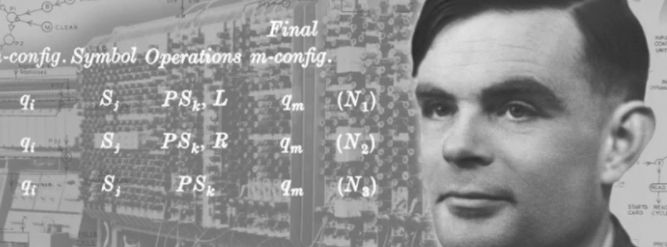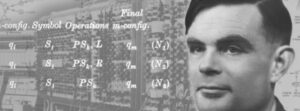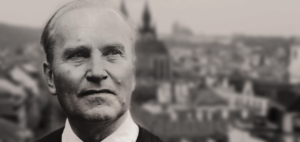Alan Turing is considered the father of computing. During the Second World War he secretly built a machine that could be used to crack the German Enigma code; this forerunner of the computer saved countless numbers of lives. Turing was also one of the first scholars to question the relationship of humans with digital machines.
Turing was not just a brilliant scientist and inventor, but also a great thinker. He never published any books but did write a number of articles and essays over the course of his life. In his celebrated paper Computing Machinery and Intelligence (1950), he explored the relationship between humans and computers. He immediately knew his machine would change humankind forever. According to Turing, over time the development of the computer would call into question the concept of ‘humanity’ itself. This paper saw the first mention of Turing’s world-renowned Imitation Game, in which he encouraged his readers to reflect on the question of whether a machine can be created which is not inferior in intelligence to the human mind.
Following his arrest for homosexual activities in 1952, Turing was forced to choose between a prison sentence and chemical castration. He opted for the latter. In 1954, he died under suspicious circumstances, apparently ending his life by biting into an apple laced with cyanide, which supposedly became the inspiration for the Apple Inc. logo.
In 2009 British Prime Minister Gordon Brown issued an apology for Alan Turing’s conviction. From 2021, he will be honored by having his face on the £50 note. Every year at Bletchley Park, the Buckinghamshire country house where Turing and his team cracked the Enigma code, a variant of his imitation game takes place. No machine has yet passed the so-called ‘Turing test’.





